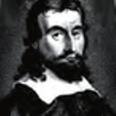online book library |
Browse through our extensive book catalogue
|
The Cambridge Seven
|

|

|
|
112 pages
|
|
A Fire That Spread to China (Christian Classics)
|
|
Inter-Varsity Press
|
|
Biography
|
|
New Ed
|
|
1996
|
|
0851112374
|
|
N/A
|
|
P-00203
|
|
|
"The seven young men who came to be known as "The Cambridge Seven" were all Englishmen, but the story of how God used this handful of students really begins in China, with a medical missionary named Dr. Harold Schofield. Dr. Schofield was a member of the China Inland Mission, the first Protestant mission allowed to penetrate into the interior of China and it was the mission pioneered by Hudson Taylor in 1866. Dr. Schofield had been a brilliant young doctor at Oxford who gave his life to Jesus and at the age of 29, God sent him to China as a missionary.
There was nothing glamorous about missionary life in the interior of China. The stench of dung, mingled with the stench of unwashed bodies was everywhere. Disease was common, especially among the poor, peasant class, and in fact, Dr. Schofield would later die from typhus, contracted in his mission field. At the time, few in England were interested in China mission. Fewer still had even heard of Hudson Taylor's China Inland Mission and the handful who did go to China were not university men, "trained in mind and body for leadership." Students in the universities were not interested in foreign missions and actually, there were not many students who were deeply interested in Jesus. Of the university students who had answered God's call to be missionaries, they wanted to follow the paths blazed by Dr. David Livingstone in Africa or the footsteps of William Carey in India. As Dr. Schofield surveyed the province (Shansi) in which he lived, with its nine million unsaved heathen Chinese and only five or six missionaries total, combined with the sleeping church back in England, he should have packed up his bags and went home in utter defeat. However, Dr. Schofield was a man of prayer and so night after night, "leaving behind food and leisure," he got on his knees and prayed that God would raise up Bible teachers and shepherds, especially from the universities and send them to China as missionaries. When Dr. Schofield died, he did not physically see much answer to his prayer. But God was working in such a way as not only to answer one man's faith and prayer but to awaken an entire nation from its spiritual slumber."
|








